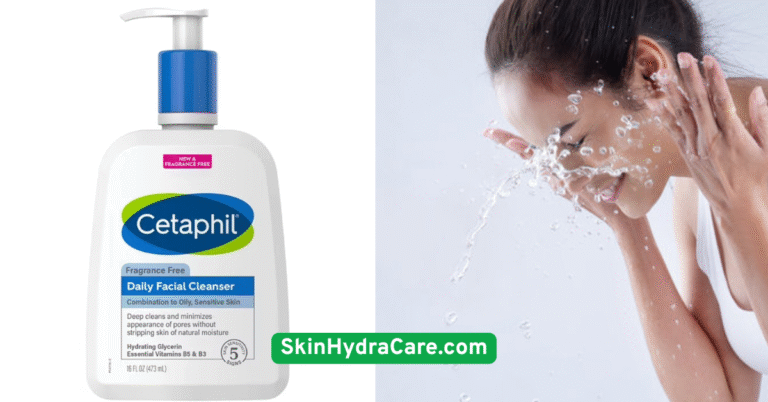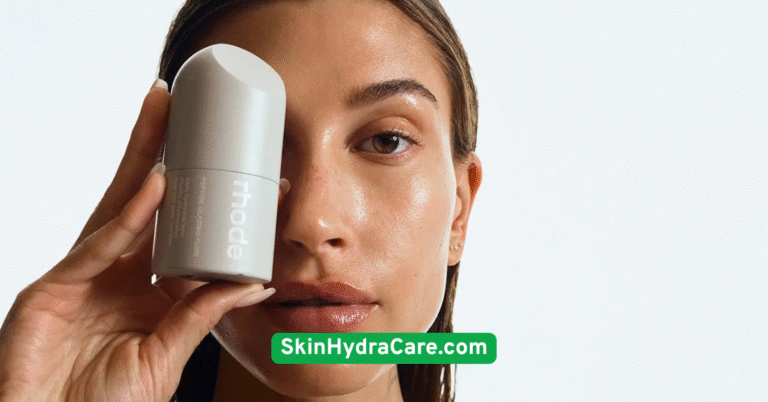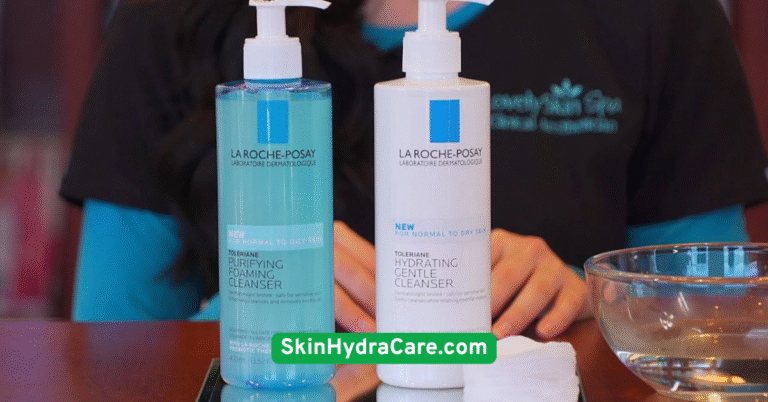30 Barrier-Repairing Skincare Tips to Soothe Sensitivity

1. Understand Your Skin Barrier and Its Role
Your skin barrier is like a shield that protects your skin from environmental damage, irritants, and moisture loss. It’s primarily made up of lipids — natural fats like ceramides — that hold your skin cells together. When this barrier is compromised, moisture escapes, and irritants get in, leading to sensitivity, redness, and dryness.Understanding this function is the first step to effective skincare. It means focusing on ingredients and habits that reinforce this natural shield, rather than stripping it away. Repairing your skin barrier isn’t an overnight fix but a gradual process that requires patience and the right approach.

2. Choose Gentle, Fragrance-Free Cleansers
When it comes to sensitive skin, what you wash your face with matters a lot. Harsh cleansers containing sulfates, fragrances, or alcohols can strip your skin of its natural oils and worsen sensitivity. Instead, opt for gentle, fragrance-free cleansers designed specifically for sensitive skin types.Look for products labeled “non-comedogenic” and “hypoallergenic.” Ingredients like glycerin, ceramides, and mild surfactants help cleanse without damage. Cleansing twice a day with the right product maintains skin hygiene without harming your barrier.

3. Incorporate Hydrating Ingredients like Hyaluronic Acid
Hydration is a cornerstone of barrier repair. Hyaluronic acid is a superstar ingredient known for its incredible ability to hold water — up to 1000 times its weight! Applying moisturizers or serums with hyaluronic acid helps boost skin hydration, which in turn supports the skin’s natural healing processes.It’s important to layer it properly, applying hyaluronic acid on damp skin before sealing with a moisturizer to lock in moisture. This combination soothes dryness and reinforces skin strength.

4. Use Ceramide-Rich Moisturizers
Ceramides are lipids naturally found in the skin barrier and essential for its structure. When your barrier is damaged, ceramide levels drop, causing skin to lose moisture and become vulnerable. Using moisturizers rich in ceramides replenishes these lipids and accelerates barrier repair.Look for products containing ceramide NP, AP, or EOP. These help restore the skin’s protective layer and reduce inflammation. Ceramide creams tend to have a thicker texture, making them ideal for nighttime use or drier seasons.

5. Avoid Over-Exfoliation to Protect Your Barrier
Exfoliation can make skin glow, but too much is a big no-no for sensitive skin. Over-exfoliating strips away essential lipids, leaving the barrier weak and prone to irritation. Chemical exfoliants like AHAs or BHAs should be introduced slowly and used no more than 1-2 times per week, depending on your skin’s tolerance.Physical scrubs, especially those with rough particles, can cause microtears and worsen sensitivity. Stick to gentle exfoliation or pause it entirely until your barrier is stronger.

6. Add Niacinamide to Your Routine for Calming Effects
Niacinamide, a form of vitamin B3, is a versatile skincare ingredient praised for its anti-inflammatory and barrier-repairing benefits. It helps reduce redness and blotchiness while boosting ceramide production.You can find niacinamide in serums, moisturizers, or toners. Start by applying a low concentration to see how your skin reacts and gradually increase usage. It’s great for soothing sensitivity and improving overall skin texture.

7. Apply Sunscreen Daily to Prevent Further Damage
Sun exposure can seriously damage an already weakened skin barrier. That’s why applying a broad-spectrum sunscreen every day, rain or shine, is non-negotiable. Mineral sunscreens with zinc oxide or titanium dioxide are often better tolerated by sensitive skin because they physically block UV rays without harsh chemicals.Daily sunscreen use prevents UV-related inflammation and barrier breakdown, helping your skin stay calm and healthy.

8. Incorporate Antioxidants to Support Skin Healing
Antioxidants like vitamins C and E play a vital role in protecting your skin from free radical damage, which can aggravate sensitivity and slow barrier repair. Vitamin C serums brighten skin and promote collagen synthesis, while vitamin E moisturizes and reduces inflammation.Use antioxidant-rich products consistently to support skin healing and shield your skin from environmental stressors.

9. Avoid Hot Water During Cleansing
Hot water feels soothing but can actually harm your skin barrier by stripping natural oils and increasing dryness. Washing your face with lukewarm or cool water helps preserve moisture and keeps your skin calm.Switching to cooler water for cleansing and rinsing also reduces redness and irritation — an easy change that makes a big difference for sensitive skin.

10. Use Overnight Masks or Sleeping Packs for Extra Repair
Overnight masks or sleeping packs provide intense hydration and nourishment while you sleep, when skin is naturally in repair mode. Many of these products are formulated with barrier-friendly ingredients like ceramides, peptides, and soothing plant extracts.Applying an overnight mask once or twice a week can boost your routine, locking in moisture and helping restore your skin’s protective layer faster.

11. Limit Exposure to Environmental Irritants
Pollution, harsh weather, and indoor air pollutants can weaken your skin barrier and trigger sensitivity. Protect your skin by avoiding prolonged exposure to smog, strong winds, and dry indoor heating.Wearing protective clothing, using antioxidant-rich skincare, and maintaining a proper cleansing routine help shield your skin from these environmental aggressors.

12. Patch Test New Products to Avoid Reactions
Introducing new skincare products without patch testing can cause unexpected irritation. To protect your sensitive skin, always test a new product on a small area, like behind your ear or on your wrist, for 24-48 hours before applying it to your face.This simple step helps you avoid unnecessary reactions and ensures your routine supports barrier repair.

13. Incorporate Soothing Ingredients like Aloe Vera and Calendula
Natural ingredients like aloe vera and calendula have well-documented calming and healing properties. Aloe vera cools inflammation and hydrates, while calendula supports skin regeneration and soothes irritation.Look for moisturizers or masks containing these botanicals to provide gentle relief and boost your skin’s recovery.

14. Avoid Alcohol-Based Toners
Alcohol in toners can be very drying and irritating for sensitive skin, disrupting your barrier and increasing redness. Instead, choose alcohol-free toners that focus on hydration and calming ingredients such as rose water, glycerin, or chamomile extract.Gentle toning balances your skin’s pH and preps it for moisturizer without causing harm.

15. Consider Probiotic Skincare to Support Microbiome Balance
Your skin’s microbiome — the community of good bacteria living on your skin — plays a crucial role in barrier health and sensitivity. Probiotic skincare products help restore this balance, strengthening the skin’s defenses and reducing inflammation.Adding probiotic serums or creams can soothe sensitivity and improve barrier repair over time.

16. Use Lightweight Moisturizers in Hot, Humid Climates
In humid weather, heavy creams may clog pores and cause breakouts. Opt for lightweight, gel-based moisturizers that hydrate without overwhelming your skin. Look for formulas that include barrier-repairing ingredients like ceramides and hyaluronic acid but feel breathable.Adjusting your routine to the climate helps maintain balanced, healthy skin year-round.

17. Incorporate Fatty Acids like Omega-3 for Barrier Support
Fatty acids like omega-3 are essential building blocks for your skin barrier. You can support your skin from the inside by eating omega-3 rich foods such as salmon, walnuts, and flaxseeds. Topically, oils rich in fatty acids can replenish lipids and reduce inflammation.Incorporating these fatty acids into your diet and skincare routine helps strengthen and repair your skin barrier naturally.

18. Avoid Harsh Scrubs and Physical Exfoliants
Physical exfoliants with rough particles can cause micro-tears on sensitive skin, leading to more irritation and barrier damage. Instead, opt for gentle chemical exfoliants or skip exfoliation altogether until your skin barrier is stronger.Protect your skin by choosing exfoliation methods that respect its delicate nature.

19. Use Barrier-Repairing Serums with Peptides
Peptides are short chains of amino acids that signal skin cells to regenerate and produce collagen. Serums with peptides help rebuild the skin’s structure, enhancing elasticity and speeding barrier repair.Incorporate a peptide serum into your routine, especially during the healing phase, to boost your skin’s resilience.

20. Stay Hydrated and Maintain a Healthy Diet
Hydration isn’t just topical — drinking plenty of water throughout the day is vital for skin health. Combined with a balanced diet rich in antioxidants, vitamins, and fatty acids, hydration supports your skin’s repair mechanisms from within.Prioritize whole foods like fruits, vegetables, nuts, and lean proteins to nourish your skin at its foundation.

21. Incorporate Facial Oils Suitable for Sensitive Skin
Facial oils like jojoba, squalane, and rosehip oil are excellent for sensitive skin because they mimic natural skin lipids and help restore barrier function. These oils lock in moisture, soothe irritation, and provide gentle nourishment.Use oils as the last step in your routine or mixed with your moisturizer to seal hydration without clogging pores.

22. Avoid Frequent Product Switching
Your skin barrier needs consistency to heal. Constantly changing products can disrupt your skin’s balance and trigger sensitivity. Stick with a simple, reliable routine for at least 4-6 weeks before introducing new products.Slow and steady wins the race when repairing your skin.

23. Reduce Stress to Prevent Skin Flare-Ups
Stress impacts your skin by triggering inflammation and weakening the barrier. Practicing stress management techniques such as meditation, yoga, or even simple deep breathing can calm both your mind and your skin.Healthy habits support your overall wellbeing — and your skin will thank you.

24. Use Humidifiers to Maintain Skin Moisture Indoors
Dry indoor air, especially in winter, can sap moisture from your skin and damage your barrier. Using a humidifier adds moisture to the air, preventing dryness and irritation.Keeping your environment skin-friendly complements your topical skincare routine perfectly.

25. Limit Use of Retinoids or Introduce Them Slowly
Retinoids are powerful but can be harsh on sensitive skin. If you want to incorporate them, start with a low concentration and use them sparingly, allowing your skin time to adjust.Avoid using retinoids on broken or inflamed skin, and always follow up with rich moisturizers.

26. Avoid Over-Cleansing and Stripping the Skin
While cleansing is important, over-cleansing can remove essential oils and weaken the skin barrier. Stick to washing your face twice a day with gentle cleansers, and avoid scrubbing vigorously.Maintaining natural oils keeps your skin protected and hydrated.

27. Incorporate Soothing Masks with Oatmeal or Honey
Oatmeal and honey are natural anti-inflammatory ingredients that calm irritated skin. Masks made with these ingredients soothe redness and provide gentle hydration.Try DIY masks or purchase ready-made formulas designed for sensitive skin.

28. Protect Skin from Cold and Wind Exposure
Cold weather and harsh winds strip moisture and cause chapping, aggravating sensitive skin. Use protective scarves and barrier creams before heading outdoors.Adjust your skincare to add richer moisturizers and oils in colder months for extra protection.

29. Get Adequate Sleep to Support Skin Repair
Sleep is when your skin does most of its healing. Poor sleep patterns can delay barrier repair and worsen sensitivity. Aim for 7-9 hours of quality sleep each night to allow your skin to regenerate and stay healthy.Establish a calming bedtime routine that supports restful sleep for glowing skin.

30. Consult a Dermatologist for Persistent Sensitivity
If your skin sensitivity doesn’t improve despite gentle care, it may be time to see a dermatologist. They can assess underlying issues, recommend prescription treatments, or identify allergies.Professional guidance ensures your skin barrier heals properly and prevents further complications.

Conclusion
Repairing a damaged skin barrier and soothing sensitivity requires consistent, gentle care. By following these 30 barrier-repairing skincare tips, you’ll give your skin the nourishment and protection it needs to heal and thrive. Remember, patience is key — skin barrier restoration takes time, but the results are absolutely worth it. Start with a simple, soothing routine, stay consistent, and listen to your skin’s signals. Your calm, radiant complexion awaits!





